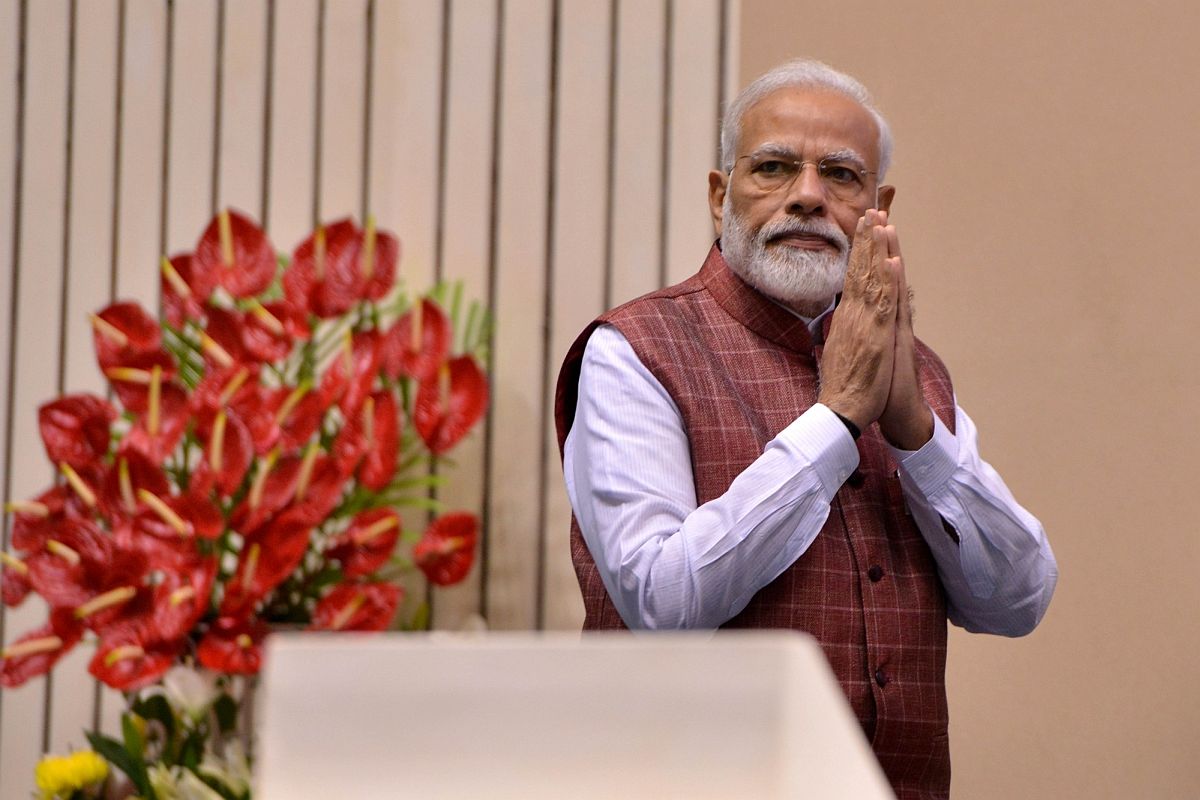Forex reserves fall to over 7-month-low, current account deficit moderates: RBI
The foreign exchange reserves fell for a third consecutive week as of December 20, data from the Reserve Bank of India said on Friday.
Amid the crisis, the RBI has slashed the reverse repo rate by 25 basis points to 3.75 per cent from 4 per cent due to the Coronavirus-related economic challenges.

Prime Minister Narendra Modi. (File Photo: IANS)
Prime Minister Narendra Modi on Friday lauded the Reserve Bank of India (RBI) for its “proactive” measures to curb the disastrous impact of Coronavirus on economy.
Praising the apex bank, PM Modi said today’s announcements by RBI will “greatly enhance liquidity and improve credit supply”.
Advertisement
He added that these steps would help India’s small businesses, MSMEs, farmers and the poor and also states by increasing WMA limits.
Advertisement
Today’s announcements by @RBI will greatly enhance liquidity and improve credit supply. These steps would help our small businesses, MSMEs, farmers and the poor. It will also help all states by increasing WMA limits.
— Narendra Modi (@narendramodi) April 17, 2020
Amid the crisis, the RBI has slashed the reverse repo rate by 25 basis points to 3.75 per cent from 4 per cent due to the Coronavirus-related economic challenges.
RBI Governor Shaktikanta Das, in his briefing, announced relief measures to maintain adequate liquidity in system, facilitate bank credit flow and ease financial stress.
Making a slew of announcement to ease the pressure on financial sector, Governor Das said that the 90-day norm will not apply on moratorium granted on existing loans by banks.
Das has asked banks to “not declare dividends until further notice.” He said that the LCR requirement for banks have been brought down to 80 per cent from 100 per cent with immediate effect in view of the economic crisis.
“Loans given by NBFCs to commercial real estate to get some relief. This is to ease NBFCs and the real estate sector. New measures shall be announced as and when need arises,” he said.
With regard to other measures, Das said RBI will begin with giving an additional Rs 50,000 crore through targeted long-term repo operation (TLTRO) to be undertaken in tranches.
Besides, he announced a re-financing window of Rs 50,000 crore for financial institutions like Nabard, National Housing Bank and Sidbi.
“This TLTRO amount can be stepped up as necessary to ensure various segments of the market (NBFCs MFIs etc) get enough liquidity.”
He further said surplus liquidity in the banking system has increased substantially as result of central bank’s actions.
Das said that RBI’s liquidity injection has been at 3.2 per cent of GDP since February 6 to March 27, 2020. “Systemic liquidity surplus averaged at Rs 4.36 lakh crore as of March-end 2020,” he said.
The RBI governor further cited the International Monetary Fund’s (IMF) global growth projections revealing that in 2020, the global economy is expected to plunge into the worst recession since ‘The Great Depression’.
The IMF has, however, India will continue to grow at 1.9 per cent during the current fiscal year.
“India is among the handful of countries that is projected to cling on, somewhat tenuously, to positive growth rate of 1.9 per cent. This is the highest growth rate among the G-20 economies as estimated by the International Monetary Fund (IMF),” Shaktikanta Das said at the video conference.
The RBI Governor’s address comes a day after PM Modi met Finance Minister Nirmala Sitharaman to discuss economic situation in the country following the lockdown due to Coronavirus pandemic.
Advertisement